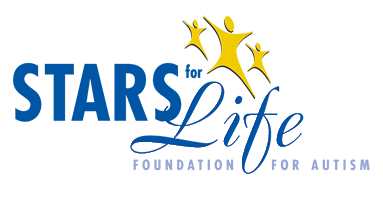Social Interactions Struggles that May Affect Individuals with ASD:
- Be unaware of what is socially appropriate and have difficulty choosing topics to talk about, or choosing inappropriate topics.
- Have a small amount, or no friends and may choose not to socialize very much.
- Experience anxiety in social situations and group settings, possibly resulting in experiencing repetitive behaviors as coping mechanisms
- Find small talk and chatting very difficult.
- Have problems understanding double meanings, for example not knowing when people are teasing you or taking what people say very literally.
- Feel more comfortable with people much older or much younger but have trouble connecting with peers.
Verbal and Nonverbal Communication Struggles that May Affect Individuals with ASD:
- Have difficulty understanding gestures, body language, and facial expressions.
- Not be socially motivated because they find communication difficult.
- Have difficulty making eye contact.
- Have difficulties expressing themselves especially when talking about emotions as well as difficulties identifying others emotions.
- Find participating in conversation to be challenging.
- Use flat, monotone, high pitch, or robotic speaking patterns that may not reflect the intended emotion.
- Invent their own descriptive words and phrases.
- Not understand figures of speech in terms of phrases such as “the early bird catches the worm.”
- Have difficulty respecting other people’s personal space.
- Use words out of context of their usual meanings.
Repetitive Behavior that Individuals with ASD May Display:
- Have an obsession with rigid routines and experience severe distress if routines are disrupted.
- Display a deep knowledge about a few specific areas of interest, and prefer to keep focus on that area in conversation.
- Display repetitive movements or tics.
- Communicate with repetitive verbalizations such as echoing or quoting directly from movies or books, particularly when anxious or agitated.
- Use objects in a repetitive manner, such as lining things up, patterning objects, or handling objects in their hands.
Other common Symptoms that May Affect Individuals with ASD:
- Be extremely knowledgeable in one or two academic subject areas, but have challenges being as successful in others.
- Have problems with forecasting plans for the future, and have difficulties organizing daily life.
- Respond emotionally when something unexpected happens or when things are moved or rearranged.
- Have difficulty reading and writing
- Experience hyper-sensitivity or impaired sensitivity to sensory input such as sounds, smells, tastes, textures, lights and/or colors.
- Feel clumsy and have difficulty with coordination.
- Be more socially isolated.
- Be perceived as eccentric or an academic
- Exhibit visual problems such as staring at spinning objects or light, fleeting peripheral glances, side viewing, and difficulty attending visually.
Autism can go undiagnosed into adulthood for various reasons. Sometimes it can be misdiagnosed as Schizophrenia, ADHD, anxiety disorder, or OCD, as symptoms are often similar. As ASD information becomes more readily available adults are starting to connect signs and symptoms to their own feelings and behaviors.
Autism has a broad spectrum of signs and symptoms. No one person will experience every trait but may experience struggles with social interactions, verbal and nonverbal communication, and repetitive behaviors.
To receive an official diagnosis you will have to go to a healthcare professional, however, if you are still curious about doing more self-screening, Autism Canada has developed an online self screening questionnaire. This is by no means a diagnosis of autism spectrum disorder, but it will help individuals gain some more knowledge and clarity around what they may be experiencing or having challenges with. The test will ask you a series of 50 questions with four possible answers available. After finishing the questionnaire the computer will evaluate your results and give you a score to fit in the categories of low, average, and high risk. This test is a helpful way to guide you to the next step of the process. Follow the link https://autismcanada.org/about-autism/diagnosis/screening-tools/adult/
